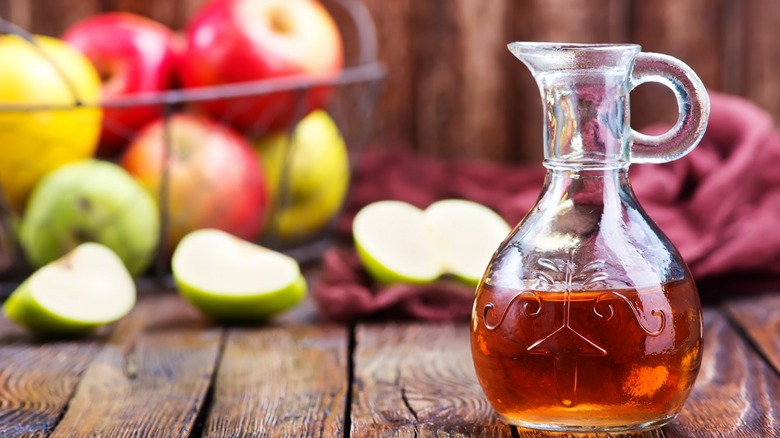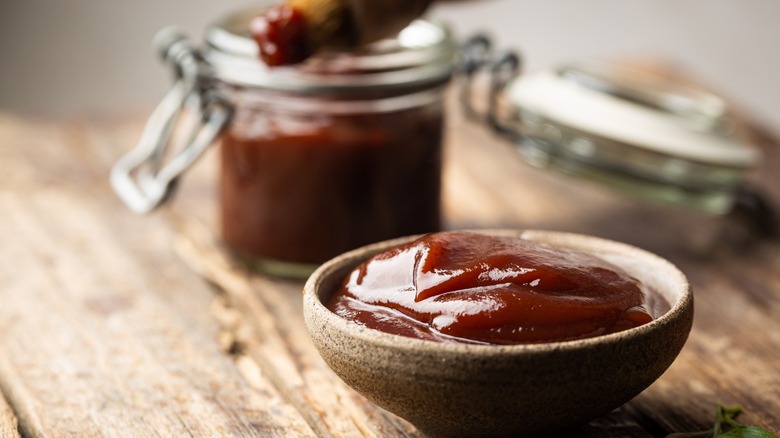For A Balanced BBQ Sauce, Apple Cider Vinegar Is All You Need
With so many variations and styles of barbecue sauce, homemade over store-bought is the way to go if you want full control over how your sauce tastes. Of course, whichever direction you decide to take things (sweet, smoky, or spicy), balance is key. One vital ingredient swap to set you on the right path is apple cider vinegar (ACV). While some traditional barbecue sauce recipes do call for ACV, many use distilled white vinegar or white wine vinegar instead, and the difference between the former and the latter two is pretty noticeable. Not choosing the right type of vinegar can ruin a homemade barbecue sauce.
Alongside a tomato base (often ketchup) and an ample amount of brown sugar, vinegar creates a harmonious equilibrium to this popular marinade. However, neither white option has the depth of flavor that ACV does. Even worse, distilled white vinegar and white wine vinegar are a bit on the face-scrunching, mouth-puckering, astringent side, since both have undergone a distillation process. In terms of flavor, this means they're basically one note, lending acidity, but not much else.
How apple cider vinegar transforms barbeque sauce
The main difference between white vinegar and white wine vinegar is that the former is created from fermented grain alcohol whereas the latter comes from fermented white wine — a bit more complex but not much better for the purposes of barbecue sauce. On the other hand, apple cider vinegar is derived from fermented apples and thus has a lot more going on aromatically and flavor-wise. ACV is less sharp, with a fruity complexity and a richer depth of flavor that add more dimension to a sauce. All you need to do is smell them side by side and you'll quickly grasp the differences.
When it comes to barbecue sauce, ACV brings the tanginess with an added touch of sweetness. You've got apple notes, as well as that element of cider — both welcome nuances to BBQ sauce. The needed acidity for balance is there but without all the sharp edges of white vinegar. Whether you're using your barbecue sauce on pulled pork, ribs, chicken, or meatballs, a little apple cider vinegar can really improve the flavor. If you don't have any ACV on hand, red wine vinegar (made from fermented red wine) will do in a pinch. Though it's not as ideal as ACV, smoky notes of red wine vinegar lend a bit more depth, putting it a step above its white counterparts.

